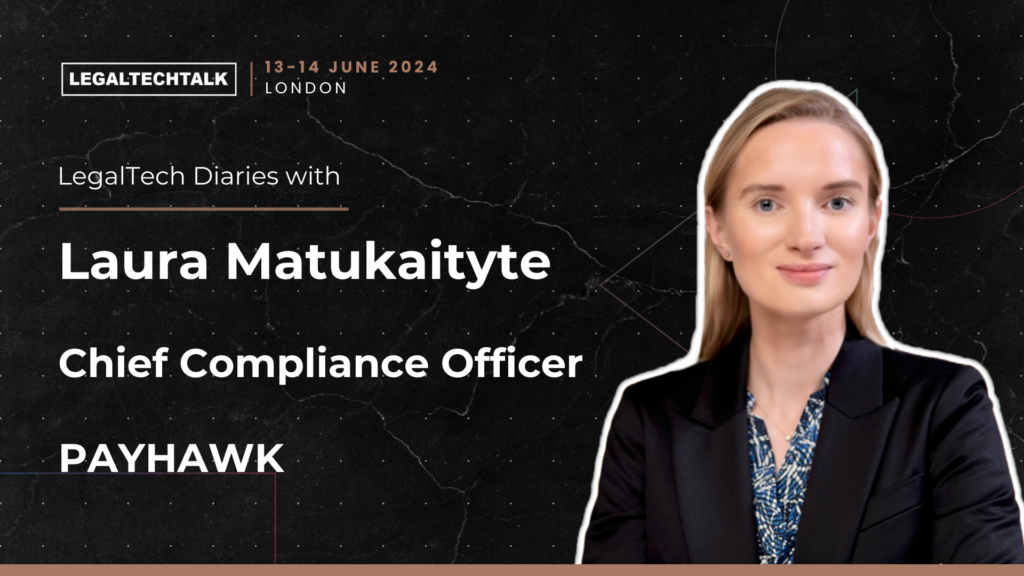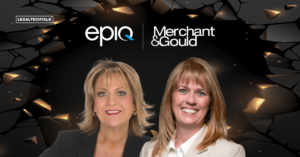In a conversation with Bradley Collins, Laura Matukaityte, the compliance leader of Bulgaria’s first-ever Unicorn, Payhawk, sheds light on the challenges and strategies involved in maintaining regulatory compliance in the dynamic Fintech industry.
Operating on a global scale, Payhawk encounters diverse regulatory landscapes, and Matukaityte discusses the impact of upcoming regulations, the nuances of compliance across different jurisdictions, and the unique position of Lithuania as a regtech talent hub. Her insights provide valuable advice for fintech companies aiming to scale internationally amid evolving regulatory frameworks.
Bradley Collins: Hi Laura, it’s exciting to be speaking with the compliance leader of Bulgaria’s first-ever Unicorn! Given your position, I’d love to hear your take on new upcoming regulations and how you plan on dealing with them?
Laura Matukaityte: We operate in a rapidly changing environment that requires the highest attention to the regulations and keeping up the speed with the evolution of the best market practices to ensure sound business and future growth of the business. Balancing regulatory compliance requirements and business agility is one of the key challenges of the companies operating in the global Fintech industry these days. There is no cookie- cutter approach to compliance judgment, just as there is no one standard approach to the rules as in some cases the rules are wage and can be implemented differently. This requires out-of-the-box thinking that ensures brand protection, mitigates the risks, and makes an organization even more attractive to do business with.
As Payhawk operates globally, we need to ensure that our services meet the requirements and the best market practices of the jurisdictions where we are operating. This is challenging as even within the EU market we have different approaches to implementation of certain aspects of measures, for example, against money laundering and terrorist financing prevention and these market particularities require a certain level of product adaptation and impede the standardization of the product.
The approval of the 6th Anti-Money Laundering Directive and the EU “single rulebook” regulation and establishment of centralized competent authority across the EU – AMLA potentially would not only close existing gaps in the combating money laundering, terrorist financing, and evasion of sanctions in the EU but would also aim to provide a single set of harmonized standards of rules through the EU market. The clarification and harmonization of the AML/CFT legal framework does not necessarily mean the imposition of additional obligations on obligated entities but would definitely help to harmonize the approach to implementation of the relevant EU legal framework in day-to-day work. Potentially this new regulation will bring a more unified approach to certain rules that would bring a global approach to the compliance field.
“Balancing regulatory compliance requirements and business agility is one of the key challenges of the companies operating in the global Fintech industry these days”
Bradley Collins: I’m curious to understand how these regulation advancements differ in the different countries you’re operating and any key advice you have to share with other fintechs who are looking to scale globally.
Laura Matukaityte: While entering multiple jurisdictions, we have learned that different EU markets have different approaches to certain requirements with respect to AML/CFT legal framework. Especially, related to quality, assessment and accessibility related to the data of the client. That requires creative solutions that would correspond not only to that market but would also ensure wider employment of the flow in other markets as well. On the other hand, we face different habits and psychology of our clients across the globe. That requires alignment as well in order to build the best client experience in the clients’ onboarding flow. Balancing between these two elements is really challenging.
The best advice would be to invest time to dive deeper and experience the market particularities of each jurisdiction you plan to operate and gain knowledge in the best market practices in compliance and customer habits & experience.
As a compliance manager, establish day-to-day collaboration with the business growth team to assess business and operational risks and to maintain the ethical integration of the compliance requirements and business growth. Proficient communication between two departments would help you to identify product and compliance requirements in advance and to ensure scalable product.
Bradley Collins: Finally – from your personal perspective, I’d love to hear your thoughts on how Lithuania has become somewhat of a regtech talent hub.
Laura Matukaityte: Lithuania continues to be regarded as one of the best gateways to the European market by companies operating internationally. This is because for years the government of Lithuania recognized the importance of the growth of this industry and strongly supports the start-up ecosystem development. As years went by, this was also recognized by the high number of global fintech companies that established their headquarters in Lithuania and operated their global business from Lithuania. This led to the fast growth of talent in this sector and now Lithuania can offer a talent pool of ICT sector and AML/CFT field specialists.
Read all 13 interviews with legal experts in our latest LegalTech Diaries Volume 3: https://www.legaltech-talk.com/legaltechdiaries/volume-3/
Laura will also be speaking at LegalTechTalk 2024 on 13-14th June 2024 at InterContinental O2 in London where over 2,500 in-house and law firm leaders, legaltech startups, and investors will join us for 2 full days of insights and networking. See more here: https://www.legaltech-talk.com/








